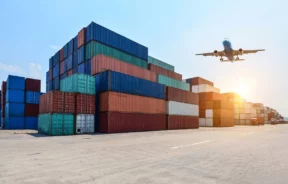Iran’s Ongoing Debate Over FATF Membership: Challenges and Prospects
WANA (Dec 15) – The issue of Iran’s interaction with the Financial Action Task Force (FATF) has remained a complex and sensitive matter in the country’s foreign policy for over a decade. Iran continues to be listed on FATF’s blacklist due to its refusal to join the body and implement its recommendations, a situation that has inflicted significant negative consequences on the nation’s economy.
A Decade-Long Debate
Discussions around FATF began in the early 2000s and quickly emerged as a contentious topic in Iranian foreign policy. During the administration of President Hassan Rouhani, four key bills were introduced to facilitate FATF compliance: amendments to the Counter-Terrorism Financing Act, amendments to the Anti-Money Laundering Act, Iran’s accession to the United Nations Convention against Transnational Organized Crime (Palermo), and accession to the International Convention for the Suppression of the Financing of Terrorism (CFT).
While the first two bills were ratified and implemented in 2018 after parliamentary approval and endorsement by the Guardian Council, the latter two faced significant opposition.
The dispute between the government, parliament, the Guardian Council, and the Expediency Discernment Council left the fate of these bills uncertain. Consequently, Iran’s continued inclusion on FATF’s blacklist has hampered its international economic relations and foreign interactions.
Blacklist and Its Implications
Iran was first added to FATF’s blacklist prior to Rouhani’s administration. However, in 2017, FATF suspended Iran’s status on the blacklist for a year, acknowledging Iran’s initial steps toward compliance.
FATF’s blacklist, established in 2000, targets jurisdictions deemed non-cooperative in combating money laundering and terrorist financing, branding them as Non-Cooperative Countries and Territories (NCCTs).
Under President Ebrahim Raisi’s administration, discussions on FATF resurfaced but yielded no tangible progress. By mid-2023, FATF reaffirmed Iran’s position on the blacklist, alongside North Korea and Myanmar.
Renewed Efforts Under the 14th Government
The issue regained momentum with the inauguration of the 14th government. In recent weeks, several Iranian officials have expressed their views on the matter, signaling a renewed commitment to resolving the issue. President Masoud Pezeshkian has publicly emphasized his administration’s determination to address the FATF challenge.
While critics argue against FATF engagement, citing concerns about Western powers’ motives, Economic Minister Abdolnaser Hemmati has highlighted the potential benefits of compliance.
Arguments For and Against FATF
Critics’ Concerns
Opponents of FATF membership argue that its leading proponents, including the U.S., EU, and UK, are themselves complicit in global money laundering. They view FATF’s overarching goals as mechanisms to impose additional financial pressure on developing nations, potentially destabilizing their economies and societies.
Supporters’ Perspective
Advocates for compliance argue that FATF membership would mitigate financial and economic isolation. Hemmati outlined its benefits, including:
- Lifting financial restrictions imposed by 200 countries and institutions on Iranian entities.
- Undermining U.S. efforts to isolate Iran’s financial system.
- Facilitating international banking for students, traders, and economic stakeholders.
- Improving Iran’s global financial standing and access to international financial resources.
Strategic Outlook
Experts believe that FATF membership presents opportunities to reform Iran’s banking system, combat organized crimes, and enhance its international image. By addressing internal systemic issues and adopting legal and political measures, Iran could pave the way for its removal from the blacklist and leverage opportunities for economic and political gains.
As the debate intensifies, the path forward will require a delicate balance between addressing domestic concerns and engaging with international financial standards to safeguard Iran’s economic and political interests.












